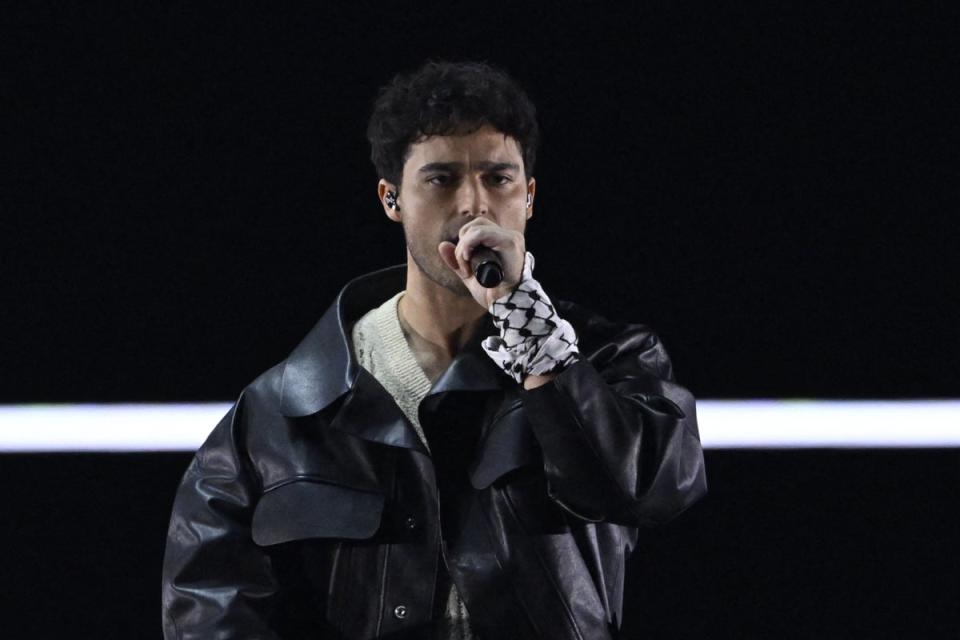Eurovision organisers rebuke Swedish singer wearing Palestinian scarf onstage
Eurovision’s organisers have rebuked the musician who wore a Keffiyeh tied to his arm at the competition’s opening performances on Tuesday night.
Swedish pop singer Eric Saade wore the Middle Eastern scarf around his wrist during a guest performance at the first semi-final of the contest in Malmö, Sweden, on Tuesday evening (7 May). The scarf has continually been used as a symbol of pro-Palestine support throughout Israel’s ongoing war in Gaza.
Saade’s decision to wear the scarf has now been condemned by the Eurovision’s organisers, who announced ahead of the competition that they reserve the right to remove any Palestinian flags and pro-Palestine symbols at the show, as protests mount against Israel’s participation in the competition amid its war in Gaza.
It also said people are not allowed to wave banners with slogans relating to the war – ticketholders are only allowed to bring and display only flags representing the 37 participating countries in the arena.
However, people have been finding different ways of showing their pro-Palestine support, such as wearing clothing and accessories with watermelon symbolism (the colours of the Palestinian flag), as well as donning a Keffiyeh.
A spokesperson for the European Broadcasting Union (EBU), which organises the event, said that the company regrets that Saade wore the Keffiyeh onstage on Tuesday.
“The Eurovision Song Contest is a live TV show. All performers are made aware of the rules of the Contest, and we regret that Eric Saade chose to compromise the non-political nature of the event.”
Saade, who placed third for Sweden in 2011 and spent two years performing with the boy band What’s Up!, has previously stated that he opposes Israel’s involvement in the competition and criticised the EBU’s handling of this year’s controversy.

Controversy has continued to heighten surrounding Israel’s involvement in the competition. The country has chosen 20-year-old Eden Golan to perform the song “Hurricane” at the final on Saturday (11 May).
Her original track, “October Rain”, had caused controversy as the lyrics were widely interpreted as a reference to the Hamas attacks on 7 October. Israel agreed to change the song following a backlash.
Last December, organisers of the event rejected calls for a boycott as they said it remains a “non-political event”.
Organisers at Eurovision recently doubled down on their stance, saying that to exclude Israeli broadcaster Kan from the competition would have been a “political decision”.
The UK will be represented by Years and Years singer Olly Alexander. Earlier this year, Queers for Palestine circulated a letter calling for Alexander to withdraw from the contest in protest against Israel’s participation.
In response, Alexander and fellow Eurovision contestants including Irish hopeful Bambie Thug released a joint statement backing “an immediate and lasting ceasefire”. However, they said they would not be pulling out of the event.
Pro-Palestine protesters were seen outside the arena in Sweden on Tuesday holding up the Palestine flag.


